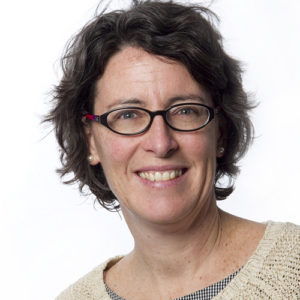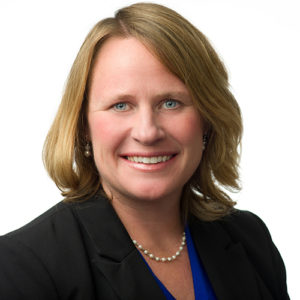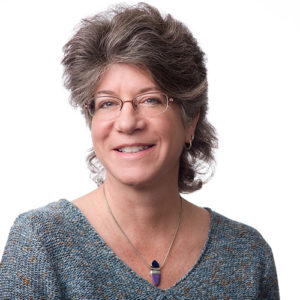This is not an active opportunity.
The Wisconsin Sea Grant Summer Outreach Opportunities Program is a paid 10-week experience that places undergraduate college students with outreach specialists on issues affecting coastal and water resources in Wisconsin. It provides students with an environmental outreach and/or community engagement experience under the mentorship of a career professional. Students will assist mentors with activities that could include background research, field work, analyses, program planning/development/delivery/evaluation and public engagement. The goal of the program is to contribute to a diverse workforce that understands technical and social challenges facing coastal communities and the natural environment. The program helps prepare undergraduate students for graduate school, as well as careers in aquatic sciences, environmental resource management and community engagement. Wisconsin Sea Grant seeks to be inclusive of applicants from various cultural, ethnic and socioeconomic backgrounds with unique lived experiences, skills, abilities and interests with the intention of expanding diversity in the fields of coastal and water resource science and management.
PAST SUMMER PROGRAMS
Learn more about students and projects from past summer cohorts in 2022, 2021, and 2020.
STIPEND
Selected students will be awarded a $6,000 stipend. If the assigned project requires an in-person presence in a location away from the student’s home or school, an additional allowance of up to $1,500 will be provided to offset travel to and from the internship location, housing, meals and related expenses.
ELIGIBILITY
Any undergraduate college student who will have completed the equivalent of one semester of full-time study by June 4, 2023 and who will be enrolled in any accredited U.S. college or university in the fall of 2023 may apply.
PROJECTS
Project titles, descriptions, student roles and responsibilities, project locations, work settings, and qualifications for the 2023 summer program are listed below.
HOW TO APPLY
Details and instructions (pdf) on how to apply for the 2023 Wisconsin Sea Grant Summer Outreach Opportunities Program are available for your reference.
Applications Due: Wednesday, February 15, 2023 by 5:00 p.m. Central Standard Time.
Projects
Please click on the project titles to learn more about the position.
Description
First Nations hold a strong connection to the land and waters of the bay of Green Bay. Incorporating Indigenous knowledge into preserving and restoring the watershed is significant to honoring sovereignty and treaty rights. This 10-week summer internship will provide leadership growth, employment experience and cultural exploration through acknowledgement and support of First Nations connections to the Green Bay watershed.
Role and Responsibilities
The intern will engage with UW Sea Grant, Cofrin Center for Biodiversity and First Nations Studies staff to complete a First Nations outreach or education project connecting Indigenous knowledge with restoration efforts at the Wequiock Creek Natural Area, a 70-acre property near the UW-Green Bay campus. Activities may include, but are not limited to archival research, archeological collection, documenting and organizing oral tradition, and the creation of outreach and education materials. Professional development opportunities will include attending workshops, participating in field work, and engagement with First Nations communities in the surrounding area of Green Bay.
Location
Green Bay, Wisconsin
Work Setting
In-person (75%), Virtual (25%)
Qualifications and Interests
- Understanding of Indigenous knowledge systems
- Interest in ecological restoration of the Great Lakes
- Creativity
- Ability to work independently and collaboratively
- Good written and oral communication skills
- Willingness to work outdoors in varied weather conditions
Description
The Wisconsin Sea Grant communications team tells the stories of the program’s research, education and outreach. The Environmental Video Production Intern will assist with creating engaging videos about the Great Lakes and Wisconsin’s waters. The Intern will grow their video storytelling skills by helping to create videos for social media, stories about science and profiles of Great Lakes advocates. Anyone with an interest in video storytelling, regardless of experience, is encouraged to apply.
Role and Responsibilities
- Brainstorming video content
- Assisting on shoots, including
- Recording video footage
- Recording audio
- Lighting interviews
- Editing videos
- Researching video topics and interviewees
Location
Madison, Wisconsin
Work Setting
Hybrid. Some tasks can be done remotely, but video shoots will be in-person in Madison or throughout Wisconsin (travel provided). Student might be asked to work occasional weekends.
Description
Coastal habitats have been greatly degraded from human activities, but there are numerous efforts currently underway to improve habitat quality on the Lake Michigan coast. The intern will work with Wisconsin Sea Grant’s fisheries specialist in the Manitowoc Field Office on monitoring projects in Lake Michigan coastal habitats. Work will be primarily field-based in small tributaries and coastal wetlands. They will assist with pre-restoration monitoring to collect baseline conditions. The intern will gain a wide range of field experiences, as well as data tabulation, data analysis, and report writing. There will also be opportunities to work with partner groups on wetland monitoring in Green Bay and forest restoration projects in Two Rivers.
Role and Responsibilities
- Assist with planning and preparation for field work
- Assist with field work, such as habitat mapping and fish surveys.
- Data entry
- Create maps of habitat
- Assist with report writing
Location
Northeast Wisconsin. Work may be concentrated in Port Washington or Green Bay, depending on funding.
Work setting
Field work (80%), Office work (20%)
Qualifications and Interests
- Interest in ecology and restoration
- Ability to work outdoors in all conditions
- Comfortable in and on the water
- GIS experience is useful but not necessary
Description
Invasive species are nonnative plants, animals and pathogens that cause negative impacts to the environment, the economy and human health. Eurasian watermilfoil and water hyacinth, aquatic invasive species of national concern, can disrupt and outcompete native populations and alter lake usability while costing lake associations millions of dollars to control. Mechanical, chemical, and biological tools are used for aquatic plant management, however there is limited guidance to which tools should be used on specific lake ecosystems. Each tool has advantages and disadvantages; however, it is beneficial for lake associations to understand and weigh all of their options when choosing which tool or tools to use on their lake.
Role and Responsibilities
We hope that an undergraduate research scholar can take the first steps of this project by working with lake associations to gather existing data on aquatic plant management pathways and then design a program to communicate options to future lake associations. The data collected will be used to develop a pilot outreach program and there will be opportunities to present the results of the research to the partner working groups.
Location
Madison, Wisconsin
Work setting
In-person; Office work (50%) Field Work (50%)
Qualifications and Interests
- Interest in environmental science and natural resources management
- Interest in community engagement and applied science
- Interest in working with lake associations
Description
The emerging contaminants, Per and poly-fluoroalkyl substances (PFAS), are a large group of man-made organic chemicals. PFAS are highly persistent in aquatic ecosystems and can bioaccumulate in different organisms (e.g., plants, invertebrates, fish, birds, etc.). Plants and animals accumulate PFAS differently, with plants preferentially accumulating shorter chain carboxylic acids and animals (for the most part) accumulating more longer chain sulfonic acids. As PFAS continue to be detected in plants and animals that are commonly consumed, it is critical to understand and communicate the environmental and human health effects of PFAS consumption to diverse stakeholders.
Role and Responsibilities
This project will consist of collecting samples from the field, analyzing PFAS levels in consumable goods, gathering existing data on PFAS bioaccumulation, disseminating data to various stakeholders, and developing a pilot outreach program.
Location
Madison, Wisconsin
Work setting
In-person; Office work (50%) Field Work (50%)
Qualifications and Interests
- Interest in environmental science and toxicology
- Interest in community engagement and applied science
- Interest in working with Great Lakes Indian Fish and Wildlife Commission
Description
Developed by Wisconsin Sea Grant and several Milwaukee-based partners, the Beach Ambassador program launched in 2021 as a response to increased drownings on local Milwaukee beaches in 2020. An increased presence of beachgoers due to COVID-19, a lack of lifeguards, and impacts of climate change causing water level fluctuations and more intense coastal storms likely contributed to decreased awareness of precautions to take to prevent water safety emergencies. People of color, and particularly African American communities, are also at increased risk of drowning due to often having a no or low level of swimming ability (USA Swimming Foundation). In response, the Beach Ambassador program was created to welcome beachgoers to have safe, meaningful experiences with the water by increasing their water safety awareness through education, outreach, and communication on water quality and water safety hazards. Now in its third year, the Beach Ambassador program hopes to create a new platform for effectively communicating Lake Michigan beach conditions and increasing awareness and knowledge among the general public to prevent further unnecessary drownings.
Role and Responsibilities
- Work with a small cohort of interns and partners to educate the general public about current or potential beach hazards, including rip currents and beach closures due to water quality.
- Educate Milwaukeeans and beachgoers about water safety through conversation, presentation of outreach materials, social media, and local news interviews
- With help of supervisor, learn and implement social science methods (ex: field notes, short surveys) into data collection and teach methods to other beach ambassadors/interns
- Regularly work in coordination with project team and Milwaukee County Parks staff to be knowledgeable of and up to date on daily weather and water quality conditions and be able to clearly and effectively communicate current or potential beach hazards with beach goers
- Participate in a 2-day training program on beach safety and how to effectively convey safety messaging as a Beach Ambassador.
- Conduct outreach at local events and with diverse school groups
Location
Milwaukee, Wisconsin
Work setting
In-person; Office work (50%) Field Work (50%)
Qualifications and Interests
- Must be able to work flexible hours including some early evenings and most weekends
- Ability and desire to work outside during a variety of weather conditions
- Safe interaction with the public if COVID-19 restrictions are still in place
- Comfort in approaching and enthusiastically communicating with members of the public
- An interest in water safety, social justice, and freshwater science
- Leadership skills and knowledge of Google Suite (ex: Docs, Meet, Sheets, Drive)
Description
Manoomin (Ojibwe) or Psiŋ (Dakota) (wild rice, Zizania palustris) is an ecological and cultural keystone species across the western Great Lakes, a shallow water plant that is critically important for the health and well-being of human and wildlife communities. However, Manoomin has experienced extensive loss in range and abundance across the western Great Lakes from a combination of factors including impacts from climate change, land use change, altered hydrology, water quality, and other changes including altered ecological/biological community interactions and a lack of recruitment and retention of harvesters. In this NOAA-funded project, our collaborative team integrates Western science-based natural resource adaptation approaches with traditional ecological knowledge and management to address adaptation needs of Manoomin. In this research we ask, “What can Manoomin teach us about restoring ecological and social relationships and adapting to climate change in the western Great Lakes and other coastal communities?” We propose that harvesting Manoomin is a critical climate adaptation and resilience strategy in the Lake Superior region, in part because harvesting requires respectful physical and metaphysical relationships among human and non-human communities. Team members on this project will work to learn about social-ecological system health and enhance resilience by centering on Manoomin, will raise public awareness of Manoomin, and will identify drivers that foster awareness, respect, responsibility, and adaptive behaviors to serve as a model for Great Lakes communities.
Role and Responsibilities
- Serve as part of a small intern cohort working on Manoomin-related projects based in Minnesota and Wisconsin
- Regularly participate in virtual and in-person meetings with supervisors and project partners
- Travel to Minnesota and/or Wisconsin to participate in field-based programs (ex: interviews, active listening and observing, wild rice monitoring), local events (ex: Pow-Wows, ceremonies) with Native Nations to learn about research methods, oral history, stories, etc. or present Wild Rice educational display at summer festivals or events
- Read literature and treaties to better understand issues related to Manoomin and local Native American history
- Completion of a capstone project (e.g., literature review, art project, poetry, outreach materials)
Location
Virtual, with travel to sites in Minnesota and/or Wisconsin.
Work setting
Office work (50%), Field work (50%)
Qualifications and Interests
- Ability to work independently with limited supervision
- Safe interaction with the public and project partners if COVID-19 restrictions are still in place, including the use of face masks at all times while working with others.
- An interest in ecology and Native American history, policy, events, and ways of knowing
- An interest in learning various social science and ecological field methods
- Leadership skills and knowledge of Google Suite (ex: Docs, Meet, Sheets, Drive)
Description
Wisconsin Sea Grant’s Eat Wisconsin Fish Initiative (EWF) supports the state’s fish farmers and commercial fishers by connecting them with consumers and others interested in local food-fish production. The University of Wisconsin Stevens Point’s Northern Aquaculture Demonstration Facility (NADF) also advances public education and additionally conducts applied research to help build sustainable aquaculture industries in northern climates. Together, EWF and NADF seek a summer scholar to work on the goals of 1) fostering informed consumers who understand the health benefits of seafood consumption and how to evaluate the safety and sustainability of the seafood they buy, 2) supporting workforce development within the aquaculture industry.
Role and Responsibilities
The EWF summer scholar will participate in communication and outreach activities with EWF and NADF. These activities could include but are not limited to:
- Staffing tables at public events (Kid’s Fishing Day, Ashland; Lake Superior Day, Superior)
- Helping to coordinate and lead tours (Bayfield/Redcliff fisheries, June 9; NADF)
- Inventorying and summarizing aquaculture and aquaponic training opportunities in Wisconsin
- Producing 4 online fish cooking events
- Updating and retooling the “Consumers Guide to Farm Raised Fish” as an accessible online product (https://www3.uwsp.edu/cols-ap/nadf/Pages/Consumer-Guide.aspx)
- Supporting a Wisconsin Aquaculture Association effort (e.g. creating a product to help farmers better understand regulations and permit requirements relevant to aquaculture)
Location
Wisconsin, near Lake Superior
Work setting
Office (75%), Off-site (25%)
Qualifications and Interests
- Excellent oral, written and online communication skills
- Comfortable working independently and as part of a team
- Interests in aquaculture, local food systems, and science communication
Description
The mission of the Wisconsin Water Library is to collect, preserve and provide science-based resources and outreach in support of the Water Resources and Sea Grant institutes. One of the library’s goals is the preservation of its collections for future as well as historical value, which includes curating vulnerable digital and print assets. This ensures that the breadth of knowledge and scholarship about the Great Lakes and Wisconsin’s waters are preserved in their entirety. This library collection also informs the education and outreach programming provided by the library in a variety of informal learning environments, such as public libraries and nonformal learning centers. This 10-week experience will provide an opportunity to explore academic librarianship and science outreach and will focus on bringing diverse voices into the library’s collection and programming.
Role and Responsibilities
In cooperation with the Great Lakes Indian Fish and Wildlife Commission (GLIFWC), the summer scholar will explore the collections and programming of the library with a critical eye towards ensuring multicultural perspectives and approaches are included, especially Indigenous voices. Projects will include but are not limited to:
- The continued development of the Maadagindan! Start Reading! Book Club. Maadagindan! brings together librarians, parents and educators to discuss children’s books about Ojibwe culture and the Great Lakes. (https://go.wisc.edu/e964d6).
- Research and development of a resource about Great Lakes history, with an eye on elevating the voices of Native women.
- Two outreach trips to staff tables at public events with GLIFWC staff (Northern Wisconsin State Fair in Chippewa Falls and Lake Superior Day, Superior).
- Other project(s) will be determined by the successful candidate’s skill set and interests.
Location
Madison, Wisconsin
Work setting
Office work (60%), Virtual (40%)
Qualifications and Interests
-
Interest in children’s literature and related programming
-
Ability to work independently and collaboratively
-
Excellent oral, written and online communication skills
-
Creativity





